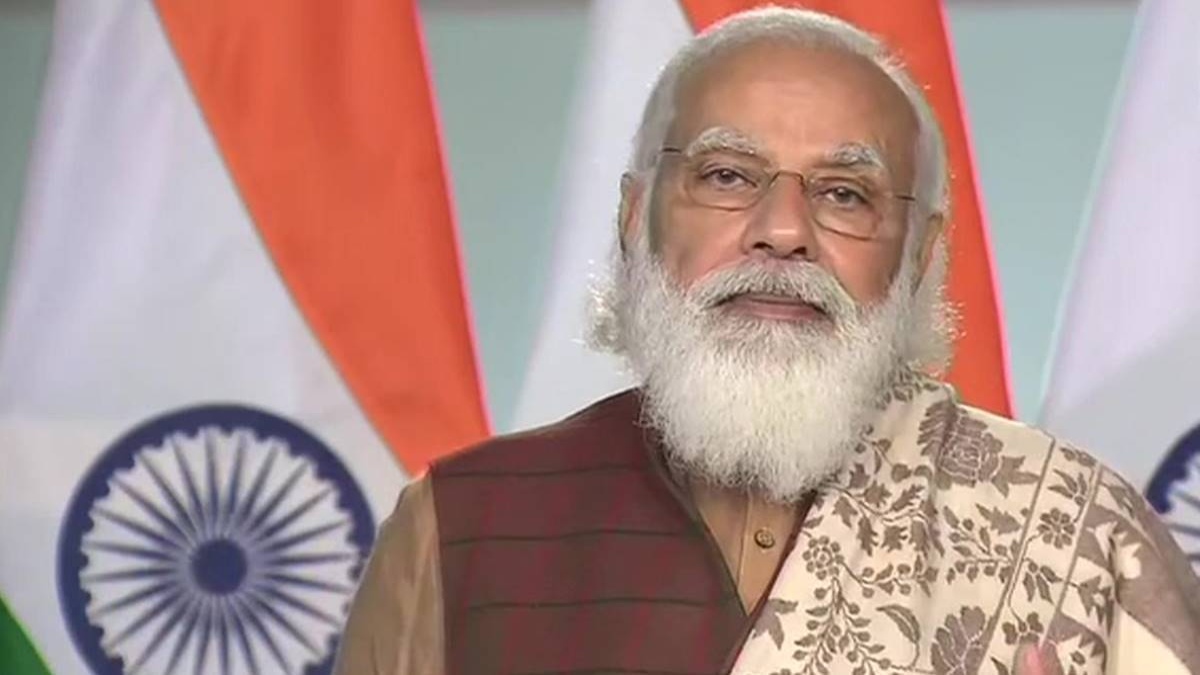
US Defence Secretary Lloyd James Austin III met Prime Minister Narendra Modi on Friday and expressed America’s strong desire to further enhance the strategic partnership between the two countries for peace, stability and prosperity in the Indo-Pacific region and beyond.
India is the third stop for Austin during his three-nation visit—he went to Japan and South Korea—and the first overseas visit by the new US Defence Secretary after President Joe Biden took charge.
“Pleasure to meet US @SecDef Lloyd Austin today. Conveyed my best wishes to @POTUS @JoeBiden India and US are committed to our strategic partnership that is a force for global good,” PM Modi tweeted, along with a photo showing him and Mr Austin seated in front of the US and the national flag.
A PMO release said that the Prime Minister welcomed the warm and close relationship between the two countries, which is rooted in shared values of democracy, pluralism and commitment to a rules-based order.
PM Modi outlined his vision for the strategic partnership between the two countries and emphasised the important role of bilateral defence cooperation in India-US ties. He also requested Secretary Austin to convey his best wishes to President Joe Biden.
Secretary Austin reiterated the US government’s continued commitment towards strengthening the bilateral defence relations between the two countries. He also conveyed greetings of President Biden to the Prime Minister.
“Thrilled to be here in India. The breadth of cooperation between our two nations reflects the significance of our major defense partnership, as we work together to address the most pressing challenges facing the Indo-Pacific region,” Austin tweeted.
During talks between Austin and Indian officials, the issues that are likely to be discussed include ways to deepen India-US strategic relations, boosting cooperation in the Indo-Pacific, China’s behaviour along the Line of Actual Control in eastern Ladakh, terrorism and the Afghan peace process.
India’s plan to buy some 30 armed Predator drones from the US for all the three services at an estimated $3 billion is expected to figure in the talks. The Predator-B drones made by US defence firm General Atomics can remain airborne for 35 hours and hunt targets at land and sea.
Also, the contentious issue of India’s planned purchase of Russian S-400 air defence systems—which under US law can attract sanctions—is expected to be raised in his meeting with Indian officials. Washington has imposed sanctions on Turkey for buying that equipment.
Meanwhile, the US Defence Secretary was urged by a senior senator to convey Washington’s opposition to India’s proposed purchase of Russian air defence systems as he headed to New Delhi on Friday for talks aimed at deepening security ties.
The chairman of the US Senate Foreign Relations Committee, Bob Menendez, urged Austin to make clear to India officials the Biden administration’s opposition to the deal. “If India chooses to go forward with its purchase of the S-400, that act will clearly constitute a significant, and therefore sanctionable, transaction with the Russian defense sector under Section 231 of CAATSA,” Menendez said in a letter to Austin, referring to the law called Countering America’s Adversaries Through Sanctions Act.
“It will also limit India’s ability to work with the US on development and procurement of sensitive military technology. I expect you to make all of these challenges clear in conversations with your Indian counterparts,” he said.
Secretary Austin is on a three-day official visit to India. It is the first visit to the country by a top official of the Biden administration.
A PMO release said that the Prime Minister welcomed the warm and close relationship between the two countries, which is rooted in shared values of democracy, pluralism and commitment